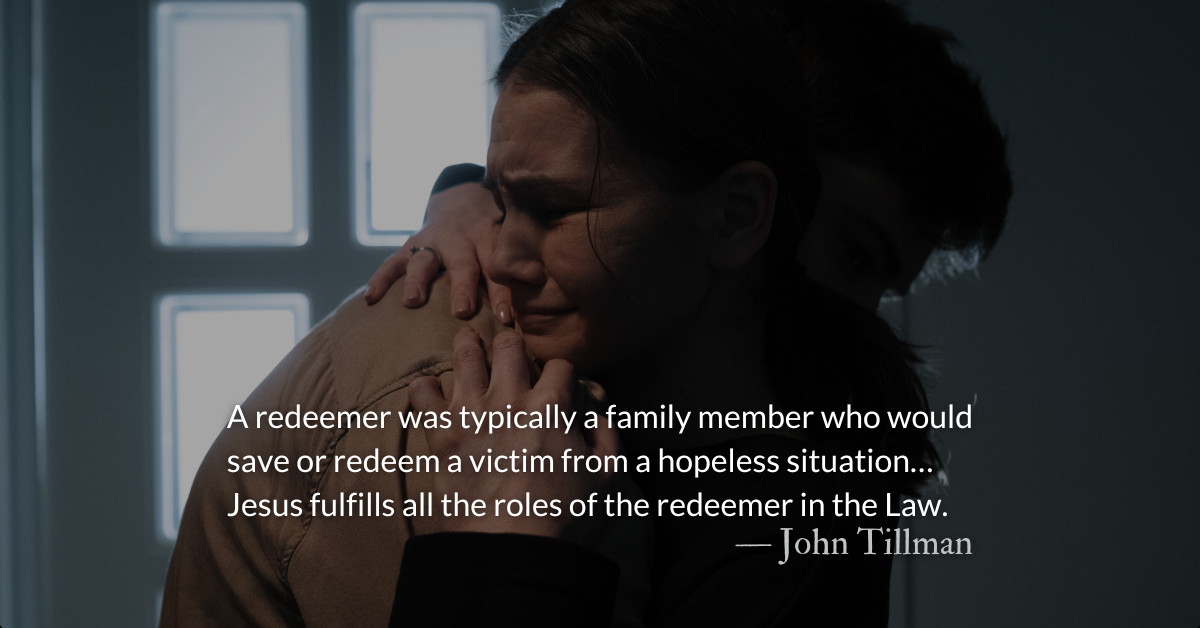Scripture Focus: Job 19.23-27
23 “Oh, that my words were recorded,
that they were written on a scroll,
24 that they were inscribed with an iron tool on lead,
or engraved in rock forever!
25 I know that my redeemer lives,
and that in the end he will stand on the earth.
26 And after my skin has been destroyed,
yet in my flesh I will see God;
27 I myself will see him
with my own eyes—I, and not another.
How my heart yearns within me!
Reflection: Our Redeemer Lives
By John Tillman
Job lived before Moses and before Abraham. The Law had not yet been written. However, the concept of a redeemer has many expressions within the Law. A redeemer was typically a family member who would save or redeem a victim from a hopeless situation.
Commentator Carl Schultz notes different types of redeemers. The redeemer could take vengeance for the victim’s unjust death. (Deuteronomy 19.1–12; 2 Samuel 3.26-27; 2 Samuel 14.11) The redeemer could reclaim the victim from slavery. (Leviticus 25.47-49) The redeemer could reclaim family property. (Leviticus 25.25-27) The redeemer could marry the victim’s widow, continuing the family line and maintaining property for the widow and her children. (Ruth 4.1-16)Job could have been thinking of a relative who might come to his aid, but what human relative could redeem all Job lost? What human relative could vindicate him? Pronounce him innocent? Restore his dignity? Restore his health? Restore his life?
Job’s words about a redeemer may have an earthly meaning, but no earthly redeemer could accomplish all that Job longed for.
Job was not asking for a loan or financial support. He did not want to muster an army to pursue human raiders. (Job 1.17) He did not appeal for legal representation. Job looked for a redeemer beyond the physical, yet Job declared he would see this redeemer in the flesh.
We share Job’s situation. Job’s difficulties are greater in severity than ours but similar in nature. Have we not lost loved ones? Have we not been cheated? Have we not lost or lacked finances? Have we not been estranged from loved ones? Have we not experienced injustice?
Do we not also need the redemptions described in the Law? By Satan’s deceit, Adam and Eve died, and we are slain with them. By sin’s shackles, we are enslaved to a wicked master. By death’s power, we are evicted from our true home with God. By all of this, we live under Satan’s kingdom—in his household.
We share Job’s hopeless situation. We also share Job’s Redeemer.
Jesus fulfills all the roles of the redeemer in the Law. He is the strong man, breaking into Satan’s home to steal us back and crushing the head of the serpent. He is our brother, restoring our rightful home and preparing a place for us. He is our liberator, breaking the shackles of sin. He is our new Adam and, united to him, as he suffered, died, and rose, so shall we.
Praise God, our Redeemer lives!
Divine Hours Prayer: The Greeting
The Lord lives! Blessed is my Rock! Exalted is the God of my salvation! — Psalm 18.46
– From The Divine Hours: Prayers for Summertime by Phyllis Tickle.
Today’s Readings
Job 19 (Listen 2:48)
John 18 (Listen 5:16)
Read more about Mystery in the Ashes
Who demonstrates the height, depth, width, and length of the love of God? Jesus. Who shows us the Father? Jesus.
Read more about Pause To Read
Another full podcast episode is out tomorrow. How many have you listened to? Let us know what you think. Share and rate the episodes to spread the word.











